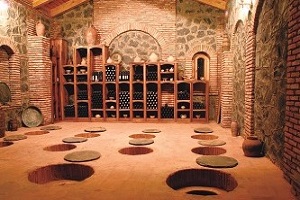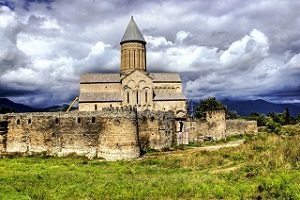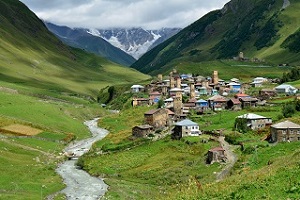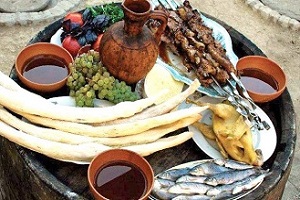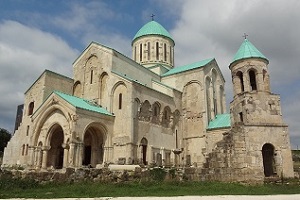Wine
Wine is inseparable part of Georgian feasts. Georgia is one of the oldest countries in the world wine making wise. Archeologists proved that people were producing wine up to 8000 years ago. The way of wine making is truly unique in Georgia. Wine is kept in clay vessels called “Kvevri” and kept under the ground which gives wine an unforgettable flavor. Thanks to this technique of Georgian wine making and fermenting grape juice in clay vessels, the country’s ancient traditions made it into UNESCO’s Intangible Cultural Heritage list.






